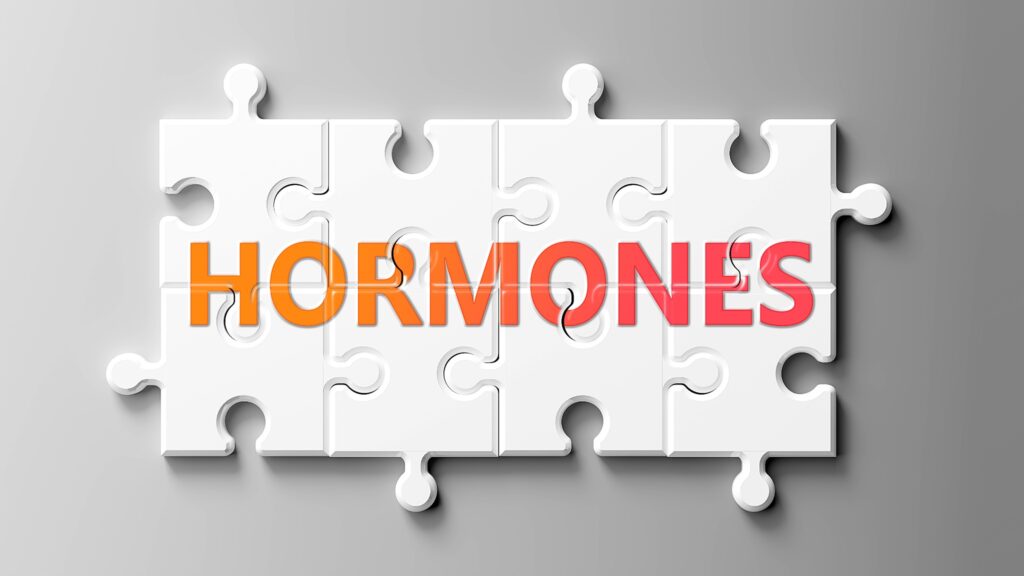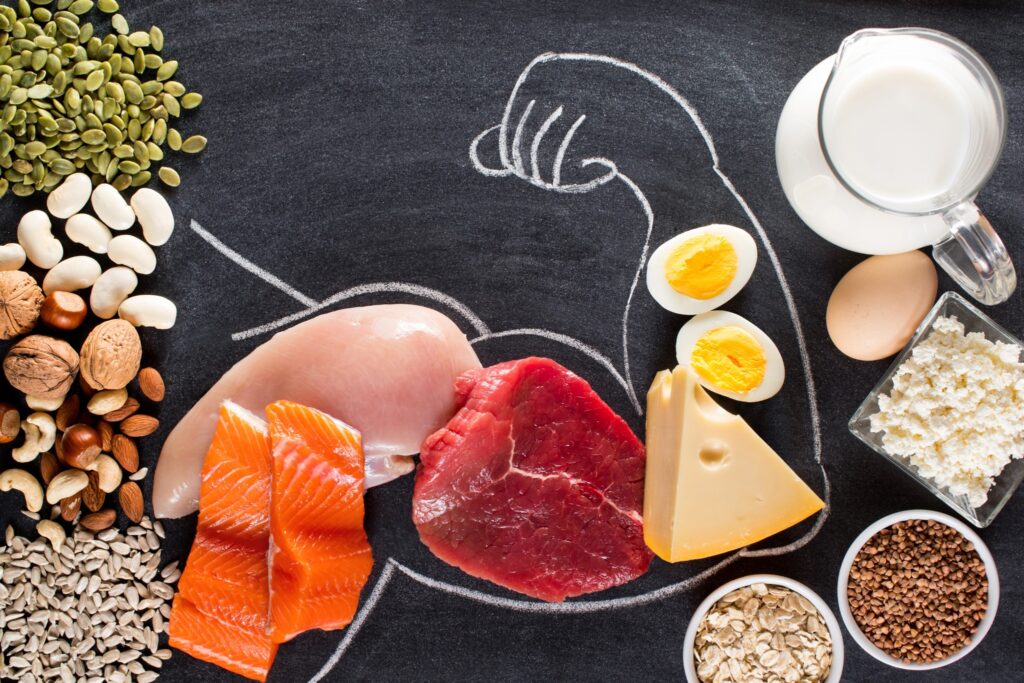Choosing the supposed “right” foods to fuel your body can feel like navigating a minefield. The fads and misinformation that circulate are truly astounding. Lately, I have been having a lot of conversations with folks about choosing nutritious foods to eat during menopause. This transitional time may require a shift in how you eat, so let’s look at some of the best practices for eating during menopause.
Nestled in Hillsboro, Oregon, Ancora Wellness is here to support your whole self. Although we accept some insurance plans, our integrative model of care doesn’t rely on insurance protocols or required diagnoses. Rather, our team of providers collaborates with you to determine the best model of care for you at any given time. From nutrition to naturopathic care to counseling and beyond, we are here to help. Connect with us to learn more and schedule an appointment.
What’s Going On During Menopause?
The short answer to that question is “a boatload of stuff is going on.” But that’s not very helpful, so let’s dig into some details.

Frequently called “the change of life,” menopause is a time of significant hormonal shifts for people with a uterus and ovaries. As you age, your body experiences a drop in the “female” hormone, estrogen. This drop eventually causes the ovaries to stop releasing eggs, stopping your menstrual cycle.
When you have had 12 months without a bleed (not due to hormonal birth control or medical issues), you are in menopause. The time before that is perimenopause which can last eight to ten years for many folks. During these years, your estrogen levels fluctuate and may cause irregular or changing periods.
Lower estrogen levels can lead to any of the following menopause symptoms:
- Hot flashes and night sweats
- Mood shifts
- Weight gain, especially around the belly
- Vaginal dryness
- A lower desire for sex
- Pain during sex
- Brain fogginess
- Decreased bone density and muscle mass
- Disrupted sleep
Although that list looks daunting and unpleasant, it doesn’t have to be the norm for you when going through menopause. There are all kinds of ways to support your body during this transitional time, starting with food choices.
Supportive Foods to Eat During Menopause

Fueling yourself with nutrient-dense foods is crucial at all times. From infancy through old age, nutrition is one of the most vital keys to wellness, as it protects and boosts your body at a cellular level. But when significant shifts such as menopause happen, your food needs often change. Caloric intake and other diet components are likely to need some adjustment.
Here are some of the top foods to eat during menopause and a glimpse into why they are supportive during this transition.
Calcium-Rich Foods
Estrogen is partly responsible for helping promote osteoblasts which are the cells that help build new bone mass. So, as estrogen levels fall during perimenopause and menopause, bone density also tends to drop. This change can leave many menopausal folks at a higher risk of fractures and osteoporosis.
Choosing foods with a lot of calcium is critical to continued bone health. Some nutritious options during menopause include:
- Leafy greens, such as kale and spinach
- Soybeans
- Salmon – Canned salmon has a bit more calcium than fresh salmon.
- Greek yogurt and other dairy products – Aim for items without added sugars.
- Calcium-fortified milk alternatives
All the Veggies

Many folks in menopause experience unwanted weight gain, and the extra pounds frequently attach themselves to the midsection. By filling at least half of your plate with vegetables, you may be able to combat this common menopause symptom.
In addition to the bone-building benefits of greens and other vegetables, filling up on these plants helps you avoid overeating. The fiber and water content of many veggies will keep you feeling full longer.
Lean Protein
Getting plenty of protein in your menopausal diet is critical. And the odds are that you need to eat more of this macronutrient than you think!
When choosing foods to eat during menopause, aim for about 20 grams of protein at each meal. It can be fairly simple for those who eat meat to hit this number. If you follow a vegetarian or vegan eating plan, you might need to work a little harder to get those grams, but it is completely doable.

Here are some common sources of protein for meat eaters and beyond:
- Chicken Breasts – A 6-ounce serving has about 50g.
- Fish – Salmon, tuna, and tilapia have about 45-50g in a 6-ounce serving.
- Tofu – One cup provides more than 40g.
- Beans – A cup of beans can have 15-18g of protein, depending on the variety.
- Eggs – One egg only has about 6g of protein. But it also has vitamin D, which is excellent for bone health. Eggs are also one of the few non-meat complete proteins available.
Phytoestrogens
Phytoestrogens, or dietary estrogens, naturally occur in some plants. When consumed, phytoestrogens can behave like estrogen. Menopausal folks may find relief from symptoms such as hot flashes by eating phytoestrogens.
Many fruits, grains, and legumes contain these powerful compounds. Popular choices include apples, carrots, flaxseeds, soybeans, tofu, lentils, and berries. Some people find that consuming phytoestrogens can help them limit or avoid hormone replacement therapy.
Are There Foods To Avoid In Menopause?
In my practice, I do not assign a value or judgment to foods. Aside from life-threatening food allergies, I don’t tell someone they “shouldn’t” eat a certain food.

But some foods and drinks may worsen menopause symptoms, so it’s worth using trial and error to see how your body tolerates them.
- Alcohol and caffeine may trigger hot flashes and night sweats.
- Added sugars and processed foods can contribute to insulin resistance and unwanted weight gain.
- High-salt foods may contribute to bone density loss. They can also exacerbate the risk of high blood pressure as estrogen levels drop.
Get an Expert Nutritionist on Your Team
If you’re experiencing menopause or simply want help establishing supportive nutritional habits, Ancora Wellness is here to help. With a range of services, we work to treat the whole person.
Our nutritionist can help you determine which foods will let you feel your best no matter your stage of life. And with naturopathic and mental health services on-site, we provide a comprehensive level of care. Reach out to book an appointment.






